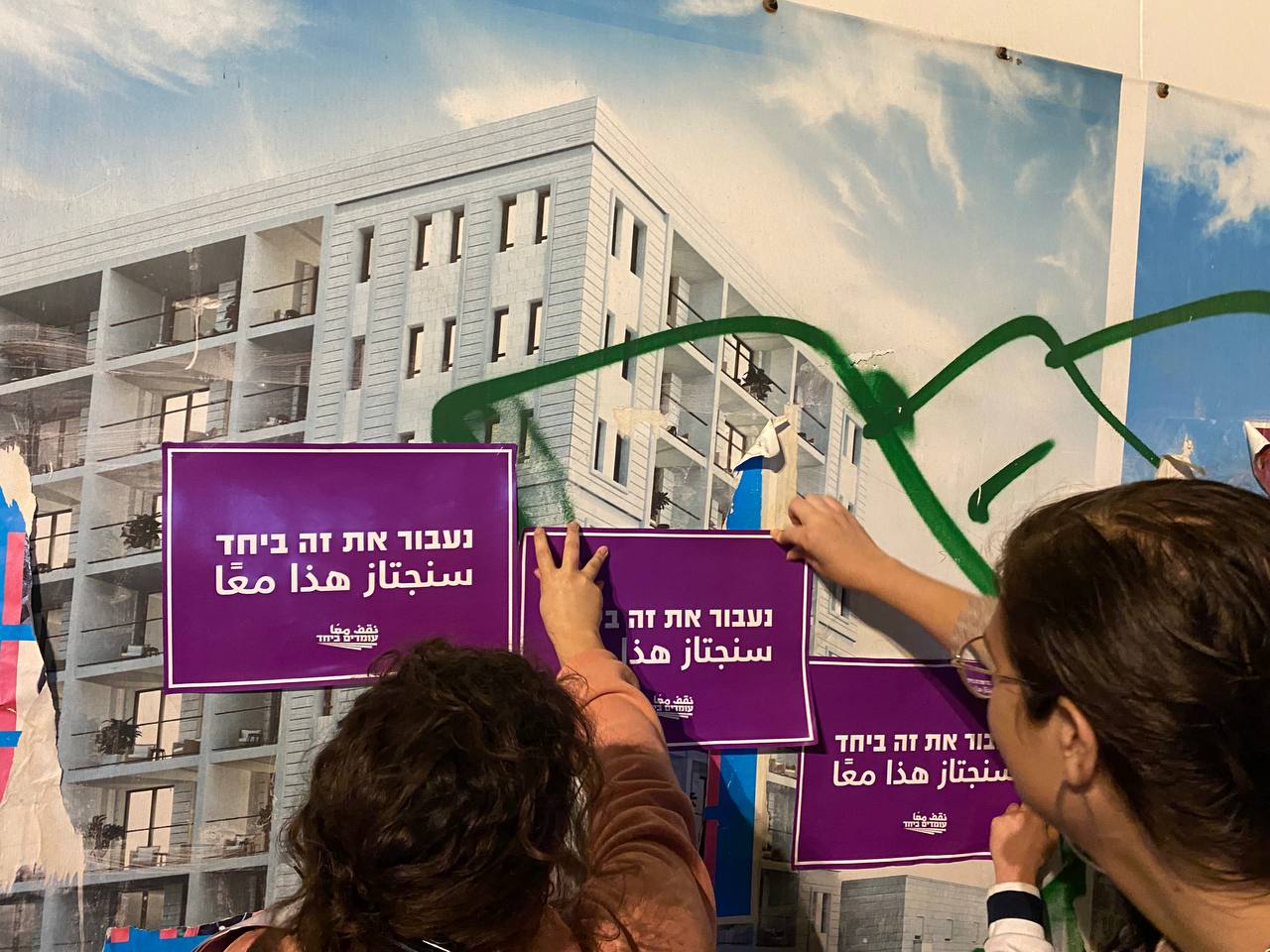
Last week, two activists from the grassroots movement Standing Together, which works to improve relations between Jewish and Palestinian citizens of Israel, were detained by Israeli police in Jerusalem. They were hanging posters that read “We will get through this together” in Arabic and Hebrew.
Yossi Mekelberg, an associate fellow at Chatham House whose research focuses on the Israeli-Palestinian conflict, says that high tensions and fear of violence in the aftermath of Hamas’s Oct. 7 attack has kept Israeli police on edge. “For the police, patience is below zero right now. Their job is not easy,” Mekelberg says. “The atmosphere in Israel right now is such that there is very little patience with the peace movement. And I say this as someone who has been part of the peace movement for all of my adult life.”
Read More: The Families of Israelis Held Hostage by Hamas Speak Out
(Jerusalem’s police department did not immediately respond to TIME’s request for comment.)
The detention of the two activists is a sign of the times. “If this happened from a simple sign saying Arabs and Jews will get through this together, imagine what would happen if you say something in public against the war,” says Alon-Lee Green, the national director of Standing Together.
Green says that his organization, and many other peace groups in Israel, have not protested the war in Gaza because it is too dangerous. “If you go out in the street and have a sign or a slogan against the war, you can die,” he says.
The war against Hamas is backed by nearly all corners of Israeli society. “While anger is high, there are no antigovt or antiwar protests. There aren’t thousands of people in the streets. This is due to fear, lack of alternative, and a silencing of dissent,” Mairav Zonszein, the Senior Israel Analyst at International Crisis Group, wrote on X on Monday.
“Being a peace activist in Israel is labeled these days as being a traitor, someone who cheers for the other team. People think you hate your own people, you are an auto-antisemite,” says Udi Goren, an Israeli photographer who opposes the war in Gaza. His cousin was one of the 200 Israelis abducted in the Oct. 7 Hamas attack, which left 1,400 dead in Israel, and he says that his family and friends often tell him his beliefs are “too extreme.”
“They think I only see the faults [of the government] and I only see what is bad. But I would say I’m just staring at reality in the face,” Goren says.
Goren says that Israel’s blockade of Gaza and ongoing airstrikes are putting many Gazan citizens in a desperate situation, not to mention a death toll that has surpassed 5,000. Goren says that Palestinians put in desperate situations are more likely to support groups like Hamas. This cycle is something he wants the government to stop.
Read More: ‘Our Death Is Pending.’ Stories of Loss and Grief From Gaza
“The thing that motivates me to get up in the morning is the fact that I have a 5-year-old who I want to protect from these horrors,” Goren says. “I don’t feel she should live through the same traumas and tragedies that my generation and my parents' generation and the generation before them has lived through.”
It’s a concern echoed by experts of the Israeli-Palestinian conflict. “If there is a lack of hope and a lack of political rights, this is where extremism thrives,” Chatham House’s Mekelberg says. He adds that many pro-peace Israelis have become much more hawkish in the aftermath of the Hamas attack. He worries that a parallel trend could take place in Gaza. “Some people resort toward radicalization during times of anger,” he adds.
Noy Katsman, a student at Ben Gurion University whose brother was killed in the Hamas attacks, says the Israeli government has failed to protect its citizens and that the ongoing war will endanger Israeli lives in the long run.
Katsman, who uses they/them pronouns, says they understand why so many Israelis are supportive of the war, but they are nevertheless saddened by it. “I think people are very angry and very scared and want revenge,” Katsman says. “But we won’t gain anything from this situation.”
Correction, Oct. 24
The original version of this story misidentified a peace activist whose cousin was abducted on Oct. 7. The activist is Udi Goren, not Magen Inon; Inon did not speak to TIME.
More Must-Reads From TIME
- The 100 Most Influential People of 2024
- Coco Gauff Is Playing for Herself Now
- Scenes From Pro-Palestinian Encampments Across U.S. Universities
- 6 Compliments That Land Every Time
- If You're Dating Right Now , You're Brave: Column
- The AI That Could Heal a Divided Internet
- Fallout Is a Brilliant Model for the Future of Video Game Adaptations
- Want Weekly Recs on What to Watch, Read, and More? Sign Up for Worth Your Time
Contact us at letters@time.com